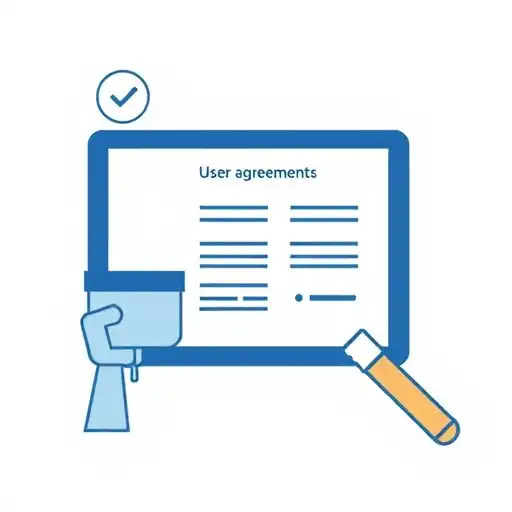
jilisaga - Understanding User Agreements: Focus on jilisaga
Explore the intricacies and significance of user agreements with a spotlight on jilisaga, discussing their role, importance, and implications in today's digital age.

Understanding User Agreements: Focus on jilisaga
The Importance of User Agreements
User agreements are legal contracts that define the terms and conditions between a service provider and the user. They are pivotal in setting the groundwork for how users can interact with a platform, use its services, and adhere to its regulatory framework. With each passing year, the landscape of user agreements becomes more intricate, especially with the surge of online platforms such as jilisaga.
Whether you're downloading software, setting up a new device, or accessing a digital service, you likely encounter a user agreement. These agreements are essential to protecting both the service provider and the consumer. For platforms like jilisaga, they are critical in ensuring compliance with legal requirements and enhancing user experience.
Elements of a User Agreement
User agreements generally comprise several crucial elements, ensuring all parties understand their rights and responsibilities. With jilisaga at the forefront of modern platforms, examining these components becomes even more pertinent.
Terms of Use: This section details what users can and cannot do on the platform. It might specify prohibited activities, outline service limitations, and provide an acceptable use policy.
Privacy Policy: Given the increasing focus on data protection, this segment describes how a company like jilisaga collects, uses, and safeguards user data. It explains what information is collected and how it is stored, providing transparency and building trust.
Dispute Resolution: Companies must include methods for addressing grievances. Often, this involves arbitration clauses that outline how disputes will be handled outside of court, streamlining the resolution process for both parties.
The Role of User Agreements in Risk Mitigation
User agreements serve as fundamental tools in mitigating risks associated with digital platforms. For jilisaga, they are integral in minimizing liability by clearly outlining the limits of the company's responsibilities. This is crucial in maintaining operational stability and steering clear of potential legal battles.
The specificity of user agreements helps prevent misunderstandings by clearly defining the services and any associated risks. In an ecosystem where digital interactions can quickly lead to misunderstandings, these agreements act as a preventative measure for conflict.
User Agreements and Compliance
With global regulatory environments becoming increasingly stringent, compliance is a major concern for platforms like jilisaga. User agreements are indispensable tools in ensuring adherence to specific laws and standards, such as the GDPR in Europe or the CCPA in California.
Amidst expansive regulatory requirements, companies must regularly update their agreements. Failing to do so could result in hefty fines and damage to their reputation. By articulating compliance-related obligations, agreements help medium-to-large enterprises navigate the complex legal landscape.
Challenges in User Agreement Implementation
Despite their significance, user agreements are not without challenges. Users often skim through them, rendering these comprehensive documents ineffective if key sections are overlooked. For jilisaga and others, ensuring users comprehend and adhere to the agreement is a daunting task.
Moreover, the language used in these agreements can be overly technical, deterring comprehension. Companies are tasked with striking a balance between legal thoroughness and accessibility, often resorting to plain language summaries to remedy this issue.
The Future of User Agreements
As digital services evolve, so too must user agreements. For platforms like jilisaga, the onus is on adapting to technological advancements and shifts in regulatory frameworks. Emphasizing user-centric design in these agreements could promote transparency and user satisfaction.
There is a growing trend toward interactive agreements, integrating elements such as videos or infographics to enhance user understanding. These innovative approaches may soon redefine the way agreements are crafted, prioritized by companies aspiring for a harmonious user experience.
In summary, while the primary function of user agreements is legal protection, their role in facilitating seamless platform navigation and fostering trust cannot be overstated. With platforms such as jilisaga leading the charge, we are witnessing a transformative period in how these agreements are perceived and executed. The intersection of legal necessity and user-centric design marks a promising future for digital interactions.


GOLD VIP
Minimum deposit: ₱1,500
- ✅ 150% bonus on all deposits
- ✅ Priority withdrawal in 1 minute
- ✅ 10% cashback weekly
- ✅ VIP support 24/7
- ✅ Higher betting limits
PLATINUM VIP
Minimum deposit: ₱6,000
- ✅ 200% bonus + all Gold benefits
- ✅ Instant withdrawal 24/7
- ✅ 15% cashback weekly
- ✅ Exclusive VIP table in casino
- ✅ Special event invitations
DIAMOND VIP
Minimum deposit: ₱30,000
- ✅ 300% bonus + all previous benefits
- ✅ Dedicated personal manager
- ✅ 20% cashback weekly
- ✅ Unlimited withdrawal limits
- ✅ Exclusive trips and gifts
🚀 Register NOW and Get ₱15,000 Bonus!
⏰ LIMITED TIME OFFER! Join over 1.2 million players who have already discovered why jilisaga is the #1 betting platform in the Philippines. Registration in 30 seconds, first withdrawal in 2 minutes!
💬 What our players say
"Best platform I've ever used! GCash withdrawal in 2 minutes, amazing support!"
- Carlos M., Manila ⭐⭐⭐⭐⭐
"Won ₱45,000 on Gates of Olympus! They paid everything correctly via GCash."
- Ana L., Cebu ⭐⭐⭐⭐⭐
"VIP system is amazing! I have a personal manager and cashback every week."
- Roberto S., Davao ⭐⭐⭐⭐⭐
PAGCOR License
SSL 256-bit
eCOGRA
BSP Approved





